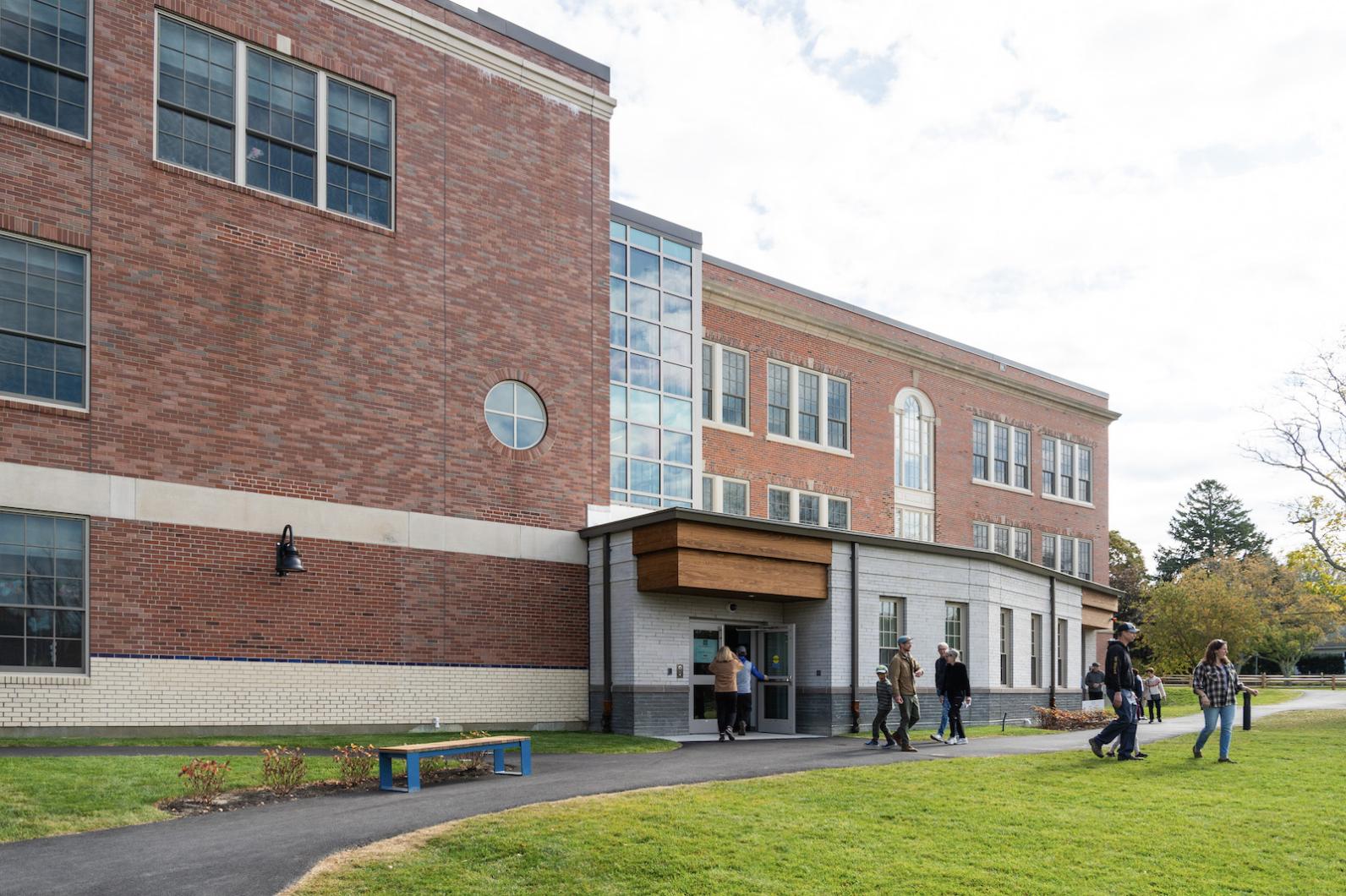Rising enrollment at the newly-renovated Tisbury School is helping to drive a 17 per cent increase in the school’s operating budget for fiscal year 2026, which begins July 1 of this year.
The school committee certified the nearly $10.8 million budget last week, clearing the way for the Tisbury select board and the financial and advisory committee to review the spending plan. The budget will have to be approved at town meeting.
More than 300 children are currently enrolled in kindergarten through eighth grade, Tisbury school committee chair Amy Houghton said at the Jan. 14 meeting.
“Enrollment in 2024-25 is higher than it has been since 2017,” Ms. Houghton said.
The Oct. 1 student census, which determines enrollment for funding purposes, found 36 more students in 2024. That number has since swelled to 44, Ms. Houghton said.
The enrollment spike represents new students from Tisbury, rather than families returning after the school’s $82 million renovation and addition, principal John Custer told the committee.
A number of Tisbury families moved their children to other Island schools in 2019, when the town school was partially closed for the removal of hazardous materials, but Mr. Custer said those students have not returned.
“Those who left, remained,” he said.
Fewer Tisbury families chose to leave in 2022, when classes were moved to modular buildings for a year and a half during the construction project, Mr. Custer said.
Enrollment projections from the New England School Development Council suggest Tisbury School will continue to have more than 300 students in the years ahead, Ms. Houghton said.
“It’s good that we have lots of space and teachers,” she said.
This year’s jump in student numbers has triggered sharply higher costs in the new budget for Tisbury’s share of the educational services that are provided Island-wide by the office of public schools superintendent Richard Smith.
Tisbury School is being assessed more than $576,000 for these shared services, which include state- and federally-mandated special education and English language learning programs and a range of therapies for students with disabilities, as well as an Island-wide music program and financial management for all of the schools.
“That’s an atypical increase, particularly for Tisbury. You would normally expect about half that,” business director Mark Friedman said, attributing the hike to both the spike in enrollment and higher expenses overall for the shared staff and contract therapists working out of Mr. Smith’s office.
Tisbury could try to stave off future sharp changes in the shared services budget by calculating its enrollment on a rolling three-year average, instead of year by year, Mr. Friedman said.
“We see swings in the budget from year to year,” he said.
The Martha’s Vineyard Regional High School committee now uses a three-year rolling average to calculate how much each Island town will pay, Mr. Friedman said.
He also warned school committee members that Tisbury’s 12 per cent payroll increase remains an estimate at this point, because contract negotiations are still underway Island-wide.
School transportation services, which are not unionized, are being renegotiated this winter as well, Mr. Friedman said.
On the bright side, he said, the enrollment increase will bring the town more state aid through Chapter 70, which supplements local school funding.
Tisbury has been awarded $1.76 million in Chapter 70 aid for the coming fiscal year, Mr. Friedman said, up from $1.68 million in the current year.
“That’s good news for Tisbury,” he said.







Comments (1)
Comments
Comment policy »